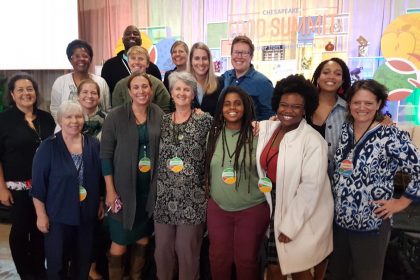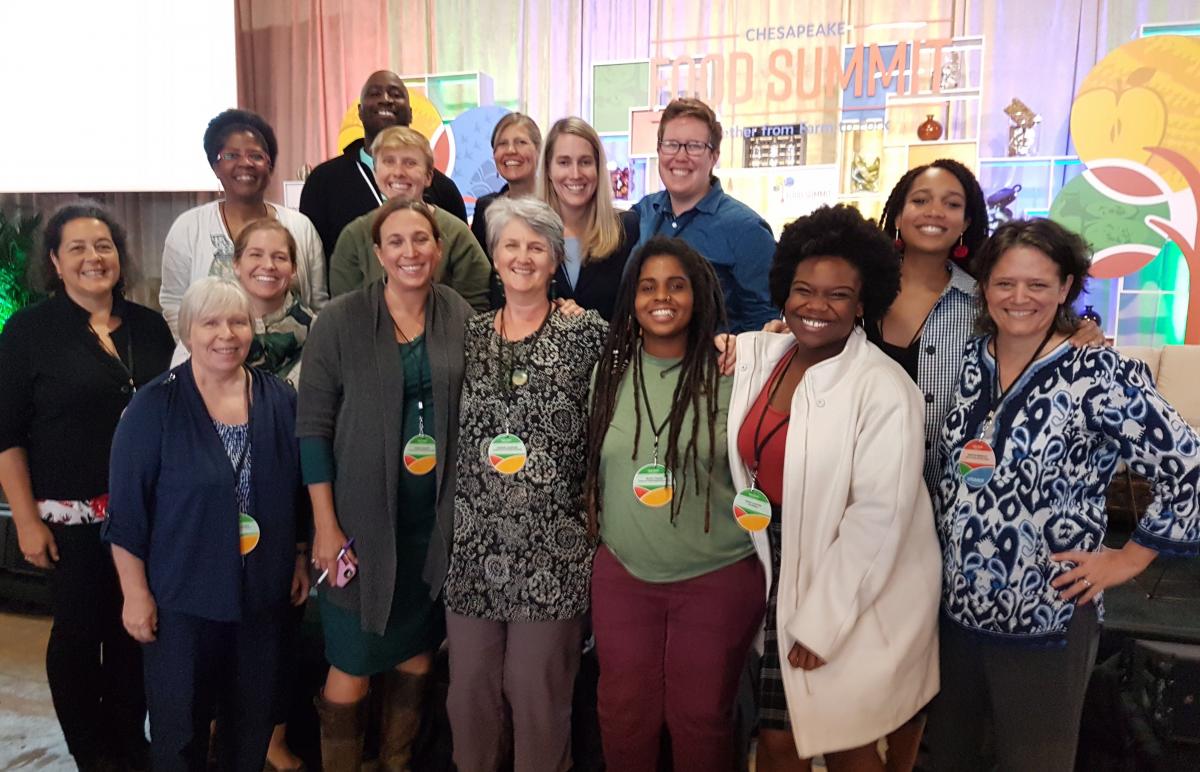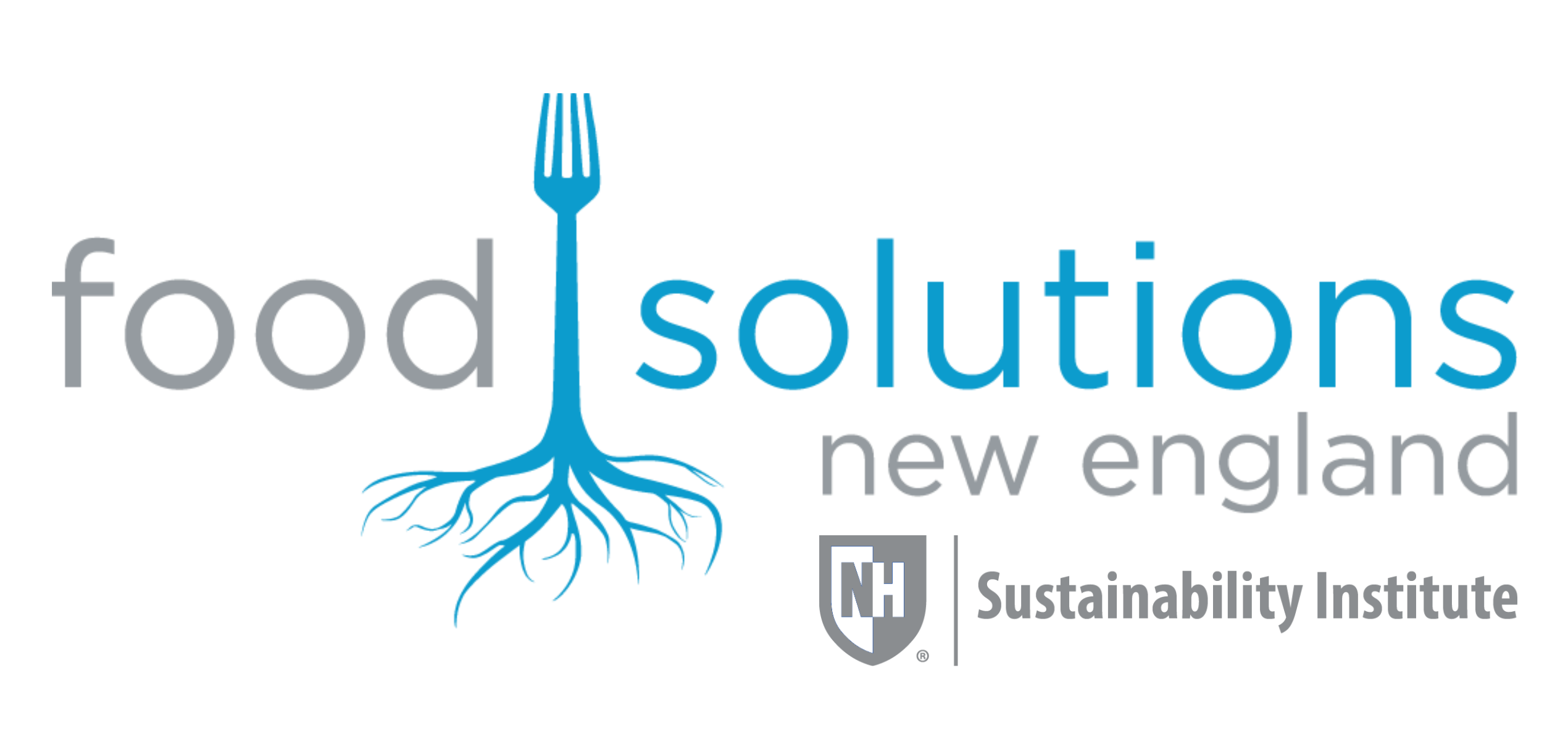
Guest blog by Renee Brooks Catacalos, author of The Chesapeake Table, Your Guide to Eating Local
 When I took over Edible Chesapeake magazine in 2006, I made a conscious decision to include my photo with the publisher’s letter each quarter. I wanted to be recognizable, and not just because I’ve always dreamt of being a minor local celebrity. Frankly, I knew that sustainable agriculture was an overwhelmingly white world, even more so than it is now. I was often the only person of color, or one of a scant handful, at agriculture meetings or some farmers markets across the region in those days. I never felt unwelcome, and I don’t know how much having my picture out there as a hedge against surprise or even hostility might have had to do with that, but I know that I hoped it would help. I had never heard the term “white privilege” then, but I did know that a white publisher would not have had to expend the same level of mental energy I did around the reaction their color might have elicited.
When I took over Edible Chesapeake magazine in 2006, I made a conscious decision to include my photo with the publisher’s letter each quarter. I wanted to be recognizable, and not just because I’ve always dreamt of being a minor local celebrity. Frankly, I knew that sustainable agriculture was an overwhelmingly white world, even more so than it is now. I was often the only person of color, or one of a scant handful, at agriculture meetings or some farmers markets across the region in those days. I never felt unwelcome, and I don’t know how much having my picture out there as a hedge against surprise or even hostility might have had to do with that, but I know that I hoped it would help. I had never heard the term “white privilege” then, but I did know that a white publisher would not have had to expend the same level of mental energy I did around the reaction their color might have elicited.
This realization has been part of my journey of learning to connect the dots between subtle and systemic racism in our society, and some of the injustices present at all levels of the food system. It’s been eye-opening for me as a middle-aged black woman and non-confrontational Libra, who has generally tried not to attribute all societal ills to racism, to see the way some organizations and advocates have put an examination of structural racism at the center of their work around creating alternative and sustainable food choices for all.
I’ve benefitted from hearing farmers and activists who are black, Hispanic, Native American, and Asian share their experiences, their consciousness and their resolve to put these issues on the table and force discussions that can lead to potential solutions. I’ve been fortunate to be part of the Chesapeake Foodshed Network and its Community Ownership, Empowerment and Prosperity pilot, a proof of concept around shared leadership, valuing lived experience, democratic decision-making, and participatory budgeting and grantmaking. We are experimenting with these initiatives as ways to dismantle dominant culture practices that stem from structural racism, and hoping to help seed these practices across our region and beyond to effect real change in our local and regional food systems.
If I had any lingering doubt that racism is actually built into our American culture, it was erased by a recent trip to Montpelier, the Virginia plantation of James Madison, considered the Father of the Constitution. The exhibit “The Mere Distinction of Colour” at Montpelier is a startlingly blunt and thorough look at the direct trajectory from the economy of enslavement that drove the wealth of both the Southernand Northern colonies, to today’s reckonings with racism through Black Lives Matter and other social movements. Most shocking to me was the description of the ways the Constitution protected and institutionalized racism against millions of people based on “the mere distinction of colour,” which Madison himself decried as resulting in “the most oppressive dominion ever exercised by man over man.” Yet, he did nothing to prevent it, either on his own plantation or in our founding national statement of principles.
America’s founding concept of racial discrimination against people who were not white has evolved into the socio-economic stratification we see in today’s food system and throughout society. Yet, the food system is an excellent entry point for work toward dismantling structural racism because every single person in the country has a stake in it and can do something to change things. We can buy from local farmers of color, support cooperative stores and urban farms in neighborhoods that have been ignored by commercial grocery stores, contribute to double-dollar programs at the farmers markets where we shop, and push to see the leadership of local nonprofits made up primarily of people from the communities they serve. We can support municipal and state regulations that lower barriers to entry for small entrepreneurs who want to farm, make food products or open food businesses. We can listen to farmworkers’ calls for action to improve their working conditions and pay, so they can live with dignity and with the potential to one day farm their own land. We can take seriously calls for land reparations to dispossessed Native American communities and black family farmers. For me, keeping the kinds of questions the Racial Equity Challenge has raised front and center in my mind helps me see more opportunities to take action every day.
Renee Brooks Catacalos is the author of The Chesapeake Table: Your Guide to Eating Local and serves on the Steering Team for the Chesapeake Foodshed Network. She recently joined the staff of Sustainable Agriculture and Food Systems Funders as member and strategic partnerships manager. Find her on Facebook and Twitter, @reneeeatslocal, or on her website, reneeeatslocal.com.




